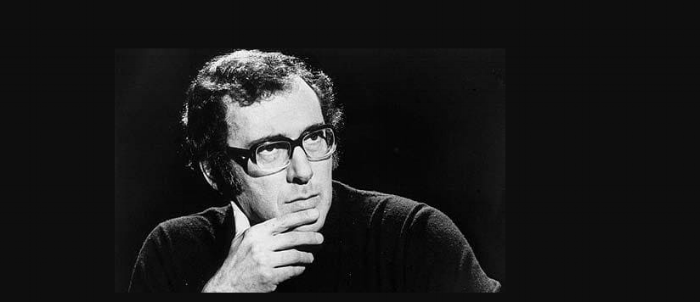‘Stan, Don’t Let Them Tell You What To Do’: Protecting the Self from the Social
Harold Pinter’s early career was spent as a jobbing actor playing minor roles in popular comedies and crime dramas. Whilst touring in Eastbourne in 1954, he met a man in a pub who recommended the boarding house he was staying in. On visiting the establishment, Pinter found that it was filthy; that his new acquaintance was the only guest; and that he was being patronised by the landlady in a curiously over-familiar way. When Pinter asked the lodger why he tolerated this, he said:
‘There’s nowhere else to go.’
This experience partly inspired Pinter’s first full-length play, ‘The Birthday Party,’ a fine production of which is currently running at the Harold Pinter Theatre in London (until 14 April).
‘The Birthday Party’ considers the plight of Stanley, an out-of-work pianist and the only guest in a dingy seaside boarding house. Stanley lives a life of indolence; of mollycoddled mornings, corn flakes and fried bread. But his quietly anonymous existence is disturbed by the arrival of two sinister besuited men, who seem to bring with them the threat of violence.
As the play unfolds, Stanley is given a birthday party he doesn’t want; presented with a child’s toy drum; and induced to play blind man’s buff. The mystery men interrogate him; break his glasses; make threats and accusations.
‘You’re dead. You can’t live, you can’t think, you can’t love. You’re dead. You’re a plague gone bad. There’s no juice in you. You’re nothing but an odour.’
‘The Birthday Party’ is a somewhat surreal and enigmatic work that refuses to explain itself. It has been described as a ‘comedy of menace.’
Many critics have seen in Stanley an individual pitted against the establishment. He simply can’t escape the pressure to conform, to fit in, to play the game; the compulsion to be ‘normal.’
Of course, we imagine that our modern lives are a million miles away from the small-minded conservatism of 1950s Britain. We consider ourselves free-thinking and open-minded; self-reliant and self-sufficient. We live in the age of empowerment; the era of the individual. But perhaps we should not be so confident.
The pressure to toe in line is timeless and universal. An invisible hand lightly touches us on the shoulder. A soft voice gently whispers in our ear: ‘Go with the flow, follow the crowd, run with the pack.’ It affects us through our families, friends, communities and colleagues. It affects us through customs, codes and conventions; through language, style and gesture. And as the writer and psychologist Charles Fernyhough has pointed out, it even affects us through our recollection of events:
‘Memory is anything but a solo activity. Even an innocuous ‘Do you remember?’ is an invitation to negotiate a shared account of the past with someone who lived through the same events. Getting the story straight can be a key part of making relationships work, and disputes about memory can easily float to the surface when partnerships break down.’
Of course, we now face an additional pressure to comply, one just as insidious as anything Pinter had in mind. Social media are not just the glue that binds us together; they’re also the glue that prevents us from getting away. At the same time as enabling exchange of ideas and freedom of expression, they invite consensus in our behaviour and actions; conformity in our thoughts and attitudes. Just as they celebrate diversity and individuality, they reinforce prejudice and confirm bias. Social media create a gravitational pull towards ‘normal.’
Inevitably this ever-increasing inducement to integrate and fall in line poses particular challenges to the marketing and communications industry, where our core competence is challenging convention and designing difference; where we need independent spirits and original thinkers to sustain us.
So what are we to do?
How do we insure ourselves against ‘groupthink’? How do we preserve autonomous thought? How do we protect the self from the social?
Or should we like Pinter’s Eastbourne lodger simply acquiesce : ‘There’s nowhere else to go.’
At the close of ‘The Birthday Party’, as the two sinister visitors take Stanley away - we know not where - the landlord calls after him:
‘Stan, don’t let them tell you what to do.’
No. 168
